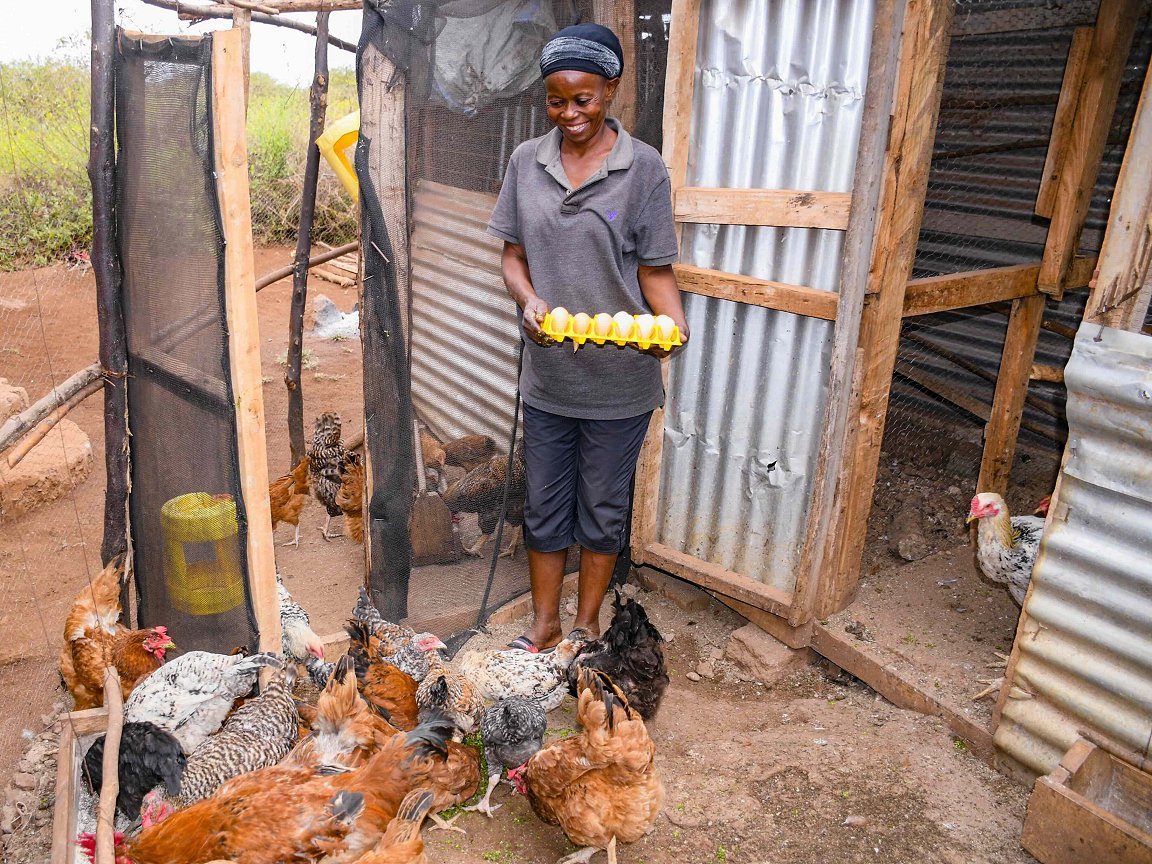Reporting that Kenya is “in the grip of a worsening climate and humanitarian crisis,” the IFRC last week launched a 15m Swiss franc emergency appeal to help the Kenya Red Cross (KRC) support 300,000 people affected by hunger, shortage of safe water, malnutrition and disease in both drought- and flood-hit counties, a press release issued in Geneva and Nairobi said.
Naemi Heita, IFRC Head of Delegation in Nairobi, said: “This is a complex emergency that goes beyond drought. Families are grappling with hunger, water scarcity, health risks, and displacement.
“Kenya Red Cross volunteers are on the front lines every day, delivering life-saving assistance in some of the hardest-hit areas. Through this appeal, we aim to mobilize resources that not only address immediate needs but also strengthen communities against future climate shocks.”
Some 16 million people live in Kenya’s arid and semi-arid lands (ASAL), where families are walking for hours each day to find water. Crops have failed, livestock are dying, and malnutrition rates are soaring, yet in other counties at the same time intense rainfall triggers destructive flash floods, and diseases like cholera, malaria and Rift Valley Fever continue spread.
With its wide variety of climatic zones due to its varied topography and Indian Ocean coastline, Kenya experiences opposite climate and weather extremes, including prolonged droughts, frost in some agricultural areas, hailstorms, floods, and dried-up rivers and wetlands, the Climate Centre said a 2021 country assessment.
“Kenya experiences major droughts every decade and minor ones every three to four years, which have led to significant crop failures and higher food prices [and also] severe riverine and flash flooding, particularly during the rainy seasons,” the assessment added, both leading to “devastating impacts on lives, livelihoods and infrastructure”.
Heavy rains late last month triggered deadly landslides in Moror and Chesongoch villages in Elgeyo Marakwet county, killing 26 people and leaving a similar number missing, according to official figures.
Nearly 3 million people face ‘high levels of acute food insecurity’ in arid and semi-arid lands
Current forecasts, meanwhile, point to below-average rains in 23 drought-affected counties and above-average rainfall in parts of Turkana and Lake Basin counties, threatening further displacement and contamination of water sources, the IFRC press release adds.
“Protection concerns, including gender-based violence and early marriage, are also increasing as families resort to desperate coping strategies. With limited humanitarian funding, health facilities in remote areas struggle to provide basic care, immunization, and maternal health services.”
The Global Report on Food Crises 2025 says nearly 3 million people face “high levels of acute food insecurity” this year in the ASAL, and for many farmers the issue is about keeping their animals alive as much as growing food.
One group of farmers in Taita Taveta county is fighting back by producing their own animal feed through a simple yet powerful idea supported by the KRC through its Integrated Food Security and Livelihood (IFSL) project.
As drought worsened and feed prices climbed, Lucy Sembei, KRC programme manager, worked with farmers and technical experts to design lasting alternatives to short-term relief.
Together with the International Centre of Insect Physiology and Ecology, the KRC introduced farmers to two game-changing feed ingredients: black soldier fly larvae and azolla, a fast-growing aquatic fern – both high in protein, easy to cultivate, and requiring minimal inputs.
The black soldier fly “is a type of insect that’s extremely rich in protein,” says Sembei. “The eggs produced by hens fed on black soldier flies are far more nutritious than those raised on commercial feed, and the feed itself is cheap and easy for farmers to produce.”
Game-changing feed ingredients: black soldier fly larvae and a fast-growing aquatic fern
The project has had a meaningful impact on both food security and local livelihoods since its launch in 2021, the IFRC reported last week. The 135 farmers supported by the project produce an average of six trays of eggs per month, selling what they don’t consume at 450 Kenyan shillings (US$ 3.50) a tray.
“We went for training and received a donation of 30 chickens. Now I have 60 chickens. I sell eggs, I sell chicks. I can now pay my bills and school fees for my grandchildren,” says one beneficiary, Jane Mbula (pictured).
Beyond poultry farming, the IFSL project has achieved far-reaching results across Taita Taveta: 3,405 people have participated, including 600 crop farmers, 2,000 sunflower growers, 80 beekeepers, 300 goat keepers, 40 rabbit farmers, and 150 mothers and 250 young people.
The project is one of several programmes supported by the IFRC Africa Zero Hunger campaign that highlights the importance of investing in local resilience and addressing the root causes of food insecurity across Africa.
Nationally the Kenya Red Cross has over 260,000 volunteers and 700 staff across all 47 of its branches, delivering food, cash assistance, clean water, and emergency healthcare to those most in need. The new IFRC appeal will boost these efforts, enabling the KRC to expand water trucking and climate-smart agriculture, repair and solarize boreholes, treat acute malnutrition, and deploy mobile health and nutrition teams in hard-to-reach areas.
In Taita Taveta, KRC beneficiary Jane Mbula holds a tray of fresh eggs as her chickens cluster at her feet: “I sell eggs, I sell chicks. I can now pay my bills and school fees for my grandchildren.” (Photo: KRC via IFRC) By the Climate Centre






